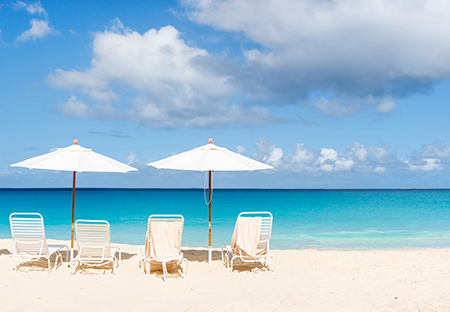Assessible Travel
Physically challenged travellers most definitely have to work harder than their able-bodied companions when it comes to planning travel. But if you plan ahead and pack right – you’ll find your trip will run a lot smoother. Start by planning as far ahead as possible so you don’t run into any surprises:
Ensure you have adequate health care insurance that covers you wherever your destination may be.
Confirm with the airline 48 hours before you travel to ensure they have details of any special requests you’ve made – whether they be for transportation around the airport or help boarding.
If you do need help boarding, check in early and request that your wheelchair – if you have one – is stored in the cabin, rather than put in the luggage hold. Planes will often only allow one wheelchair in the cabin per flight, so an early check-in can help ensure that it’s yours.
Just like you would any piece of luggage, label your wheelchair or scooter clearly with your departure gate, destination and address.
Most hotels will do a fantastic job of catering to travellers with special needs…but the more notice you give them, the better. Many hotels do have a limited number of accessible rooms.
Do your research. Accessibility can be limited in some areas. You will find most of the information you need online about accessibility and transportation options available at your destination. Taxis are typically going to be your easiest method of getting around, but can get expensive so learn ahead of time what your best options are.
Here are a few excellent websites to get you started:
In 2011 the Rick Hansen Foundation launched www.globalaccessibilitymap.com As part of the Foundation’s ongoing commitment to improving accessibility and quality of life for all people – including people with disabilities, seniors, parents with strollers or caregivers with mobility aids – the Global Accessibility Map is similar in concept to consumer reviews commonly found on travel websites, but with a focus on accessibility criteria
www.access-able.com has a searchable worldwide list of cities that will suggest accessible hotels or hostels.
The Government of Canada website www.accesstotravel.gc.ca provides info on accessible transportation and travel across our country. Get advice from others by visiting a variety of online forums – including Thorn Tree – through the lonely planet website. This can be a great way of accessing information that isn’t available anywhere else.
When it comes time to packing, make sure any medication you will need are in your carry-on luggage, just in case your checked bags are lost or delayed.And carry spare prescriptions if possible – just in case you do lose something.
Finally, be prepared to explain to people exactly how they can help you if you need it. Most people at most destinations around the world are willing to provide assistance but are sometimes unsure whether to offer.


